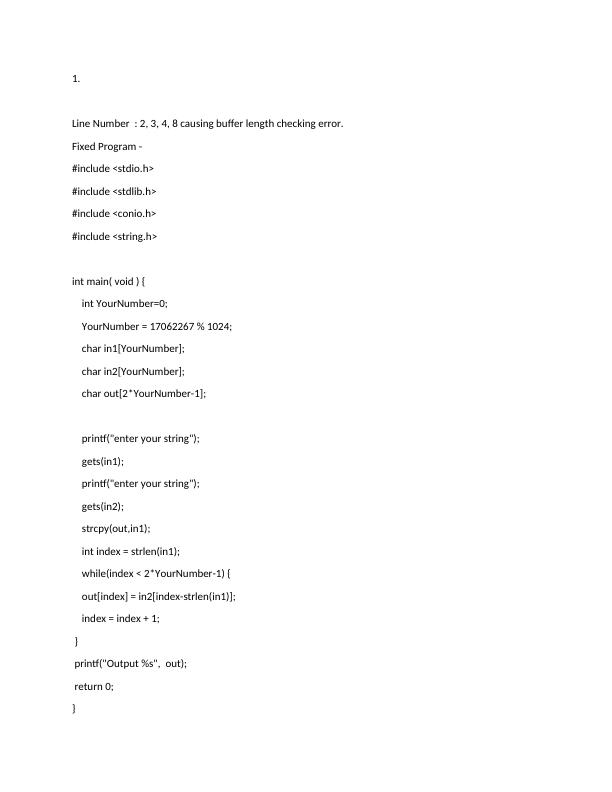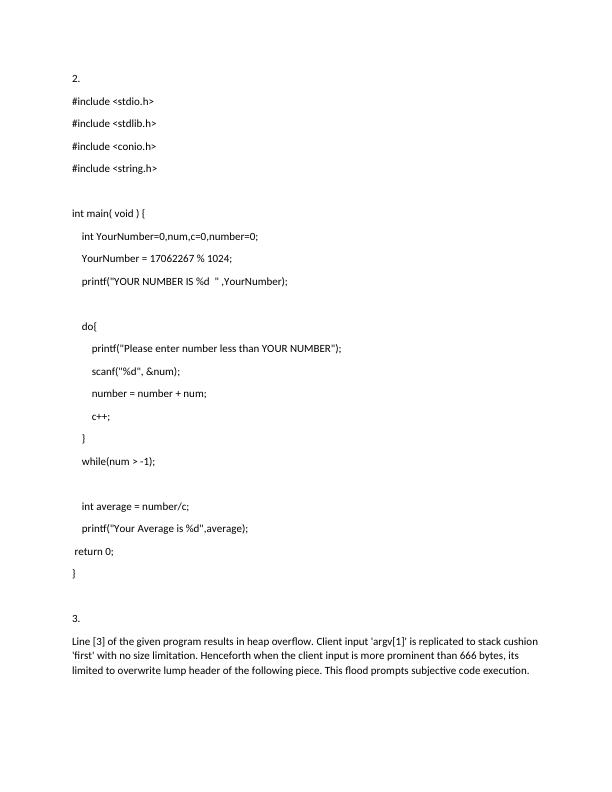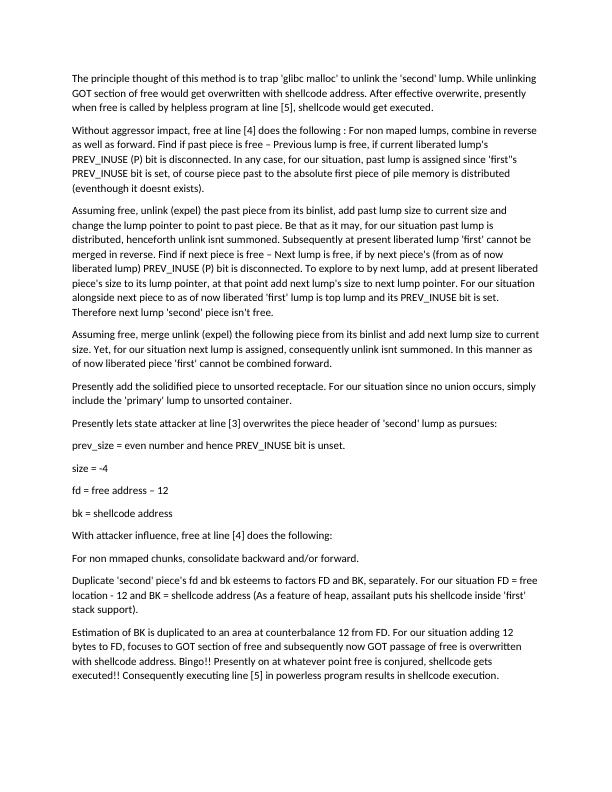Common Programming Errors and Security Measures
Identifying buffer length checking errors in a C program and writing a C program to prompt for a positive number less than a given value.
9 Pages2871 Words70 Views
Added on 2023-02-01
About This Document
This document discusses common programming errors and security measures to protect code and data. It covers topics such as buffer length checking errors, memory leaks, handling user input securely, and implementing security patches. The document also provides insights on threat modeling and risk assessment.
Common Programming Errors and Security Measures
Identifying buffer length checking errors in a C program and writing a C program to prompt for a positive number less than a given value.
Added on 2023-02-01
ShareRelated Documents
End of preview
Want to access all the pages? Upload your documents or become a member.
Understanding Buffer Overflow: Stack and Heap Buffer Overflows, Exploiting Buffer Overflow, JOP and ROP
|11
|1080
|283



